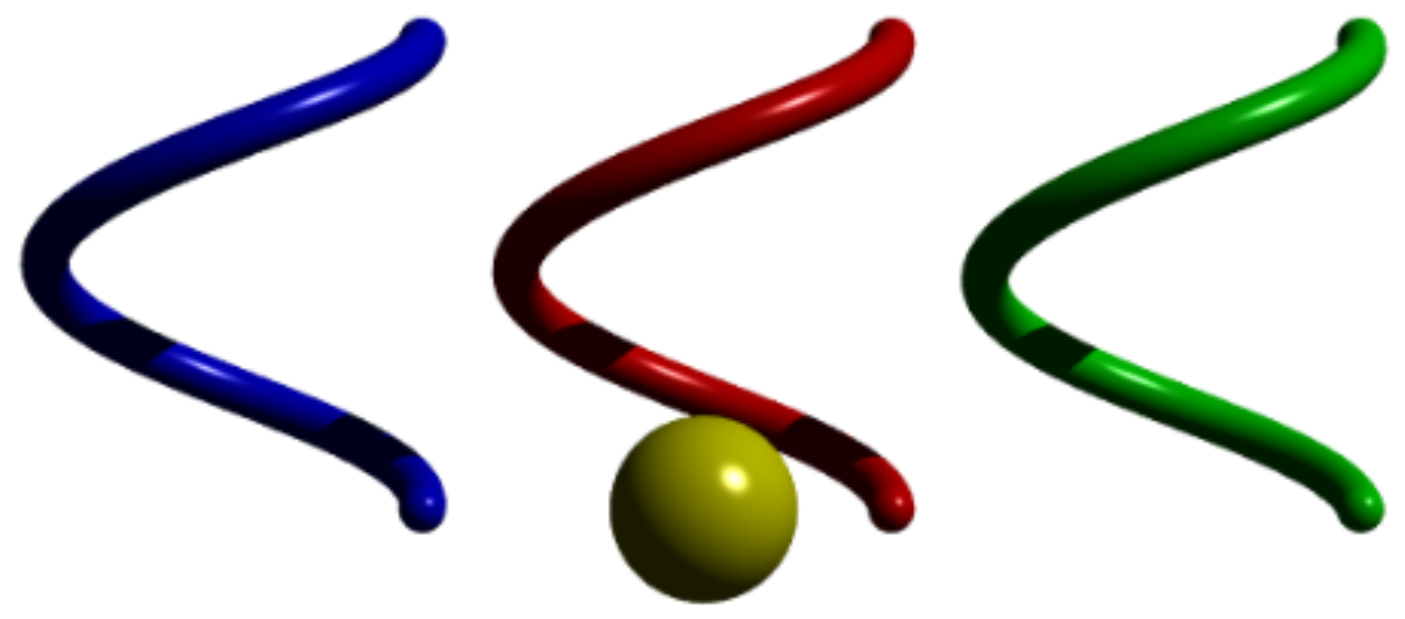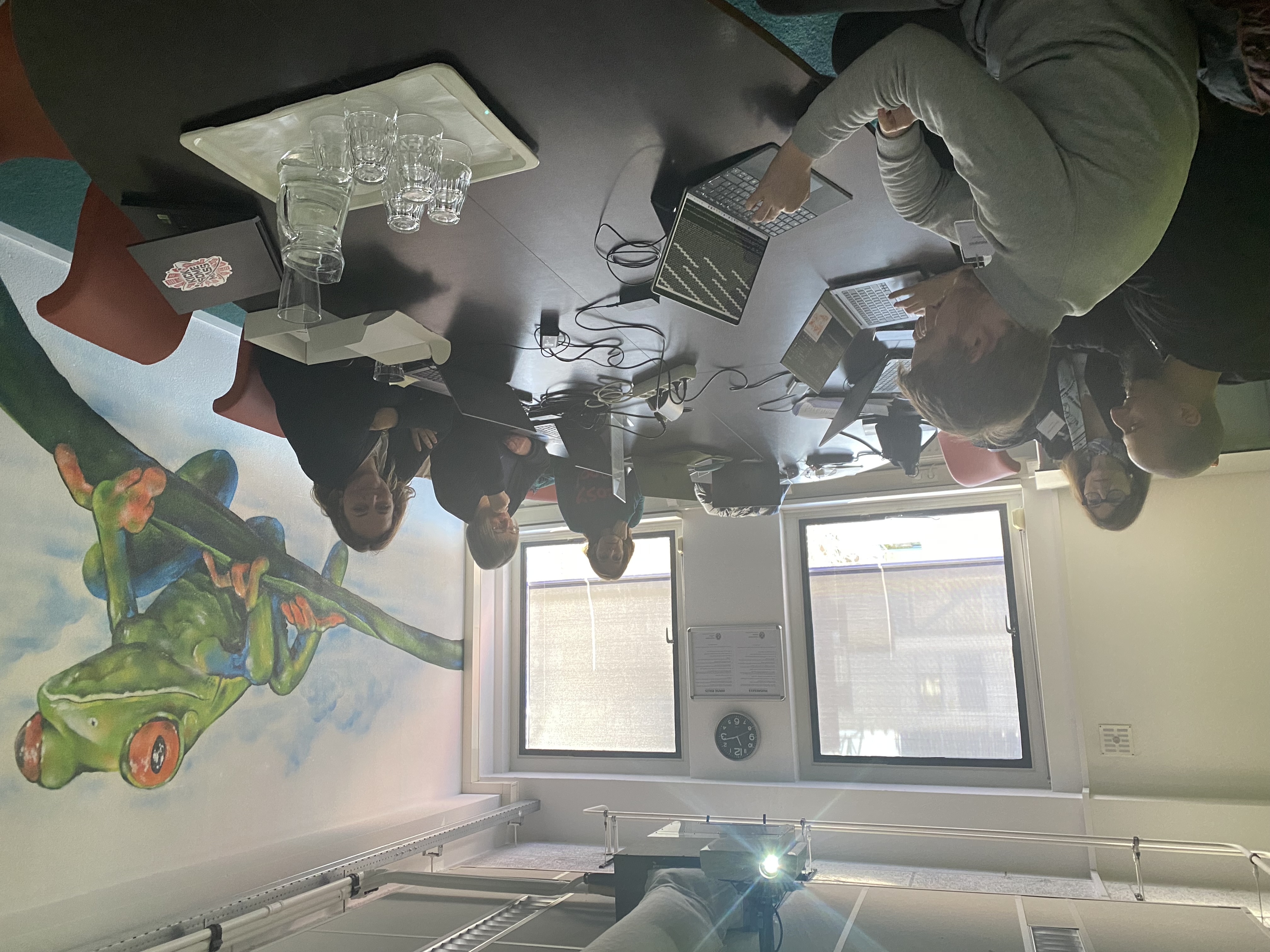The Proteomics Standards Initiative of the Human Proteome Organization held their 2023 annual meeting in fair Leiden.
To have a bit of fun when preparing welcome and general housekeeping slides, I prompted ChatGPT (GPT-4) to make a POV-Ray script that illustrates the idea of standards in proteomics. The AI responded that “Creating a POV-Ray script to visualize the concept of standards in proteomics can be challenging, but we can try to represent the idea by creating an abstract scene with protein-like structures that share a common characteristic, symbolizing a standard. In this script, we’ll create a series of helical structures that represent proteins and a common reference point that represents the standard.” and continued to generate a piece of POV-Ray code, that when executed renders the following image:
 ChatGPT visualization of proteomics standards via POV-Ray
ChatGPT visualization of proteomics standards via POV-Ray
I like to challege ChatGPT in this kind of way, to follow its improvements in “understanding” a three-dimensional world. The model has made noticable improvement, even going from GPT-3 to GPT-4. Where GPT-3 would build a snowman upside down and push the carrot all the way into its head (or the ball of snow representing the snowman’s head), GPT-4 places the snowman upright and places the carrot correctly. The proteomics standards challenge was definitely a bit more abstract, and not something on which the model would have any similar training data. But I still think the results make some sense.
The meeting itself proceeded smoothly, with productive discussions in all breakout groups. The main room was (appropriately) named the “Spectrum Room”, a coincidence not lost on the participants. The top floor breakout rooms was named after the “skyline” of Leiden visible through its windows, whereas another breakout room was named the “Frog Room”, with a matching mural.
Participants assembling in the “Spectrum Room”
 Human interaction on molecular interactions standards in the “Frog Room”
Human interaction on molecular interactions standards in the “Frog Room”
Quality conversations on quality controls in the “Skyline Room”
This is not the first scientific meeting I have organized in Leiden - see for example last year’s Lorentz Center workshop on Proteomics and Machine Learning - but it was certainly one of the most rewarding experiences I have had doing so. Thanks to my former PhD student Arzu Tuğçe Güler for helping out with the arrangements. The Plexus Student Centre worked perfectly for a meeting of ~40 people onsite (20 or so participated remotely), with one large and two smaller rooms for breakouts, in close proximity. The location is also perfect, right in the middle of the old town. The scientific outcomes of the meeting will be summarized elsewhere - keep an eye out!
